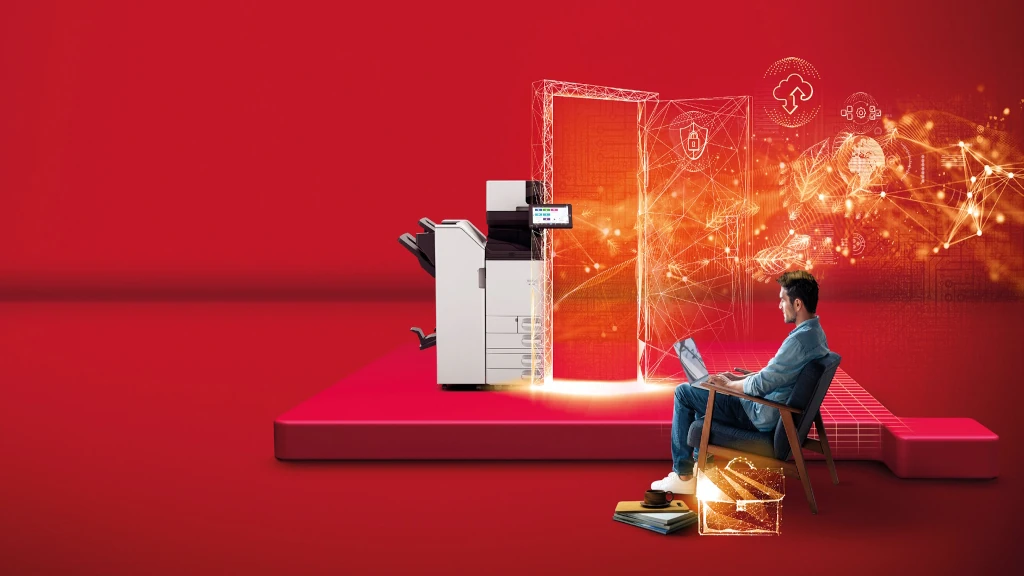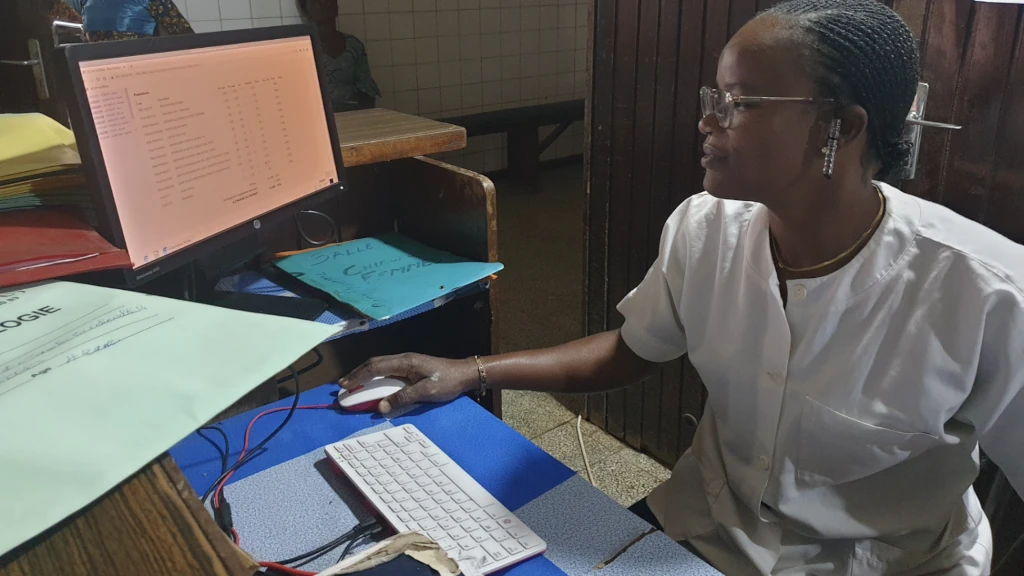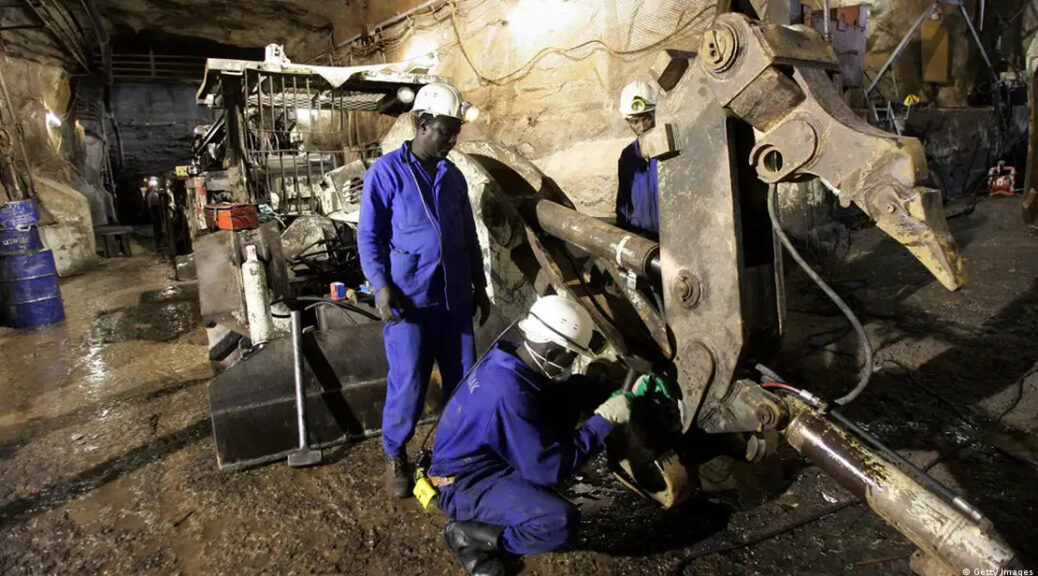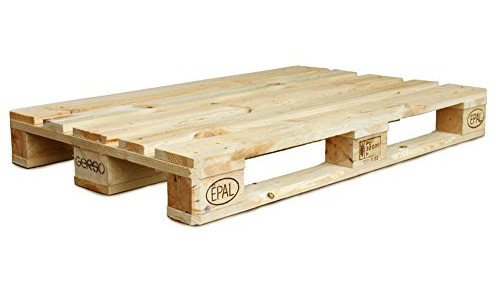All posts by Ricoh Portugal
Togo hospital employs Raspberry Pi 400 as a thin client
The first day back after the Christmas holiday can be a Godzilla of the Sunday Scaries for some, but ours was made much more pleasant by the discovery of another update from Togo, courtesy of local philanthropist and longtime friend of Raspberry Pi Dominique Laloux. Read on to learn how Raspberry Pi 400 is helping to transform essential record-keeping at Bethesda Hospital in Togo, West Africa.
A small Ubuntu server has been in place at Bethesda Hospital since March, speeding up the essential record-keeping previously done by much slower and less secure means. Patient demographic data, medical procedure records, pharmacy sales, and other essential information are securely stored on the system and accessed around the hospital on Raspberry Pi desktop units. Another module is currently in development to record more sensitive medical data, such as logging symptoms, treatment plans, lab reports and official diagnoses. A third module is also being considered so that all pharmacy purchases no longer need to be processed by the ageing inventory software currently in use. A replacement fleet of Raspberry Pi 400 units has been trickling through the hospital for several months now, churning through the work done by much older, bulkier hardware. The Raspberry Pis are working alongside some remaining older laptops and PC towers, but the Ubuntu server has updated and streamlined everything across the hospital.
Cross-departmental change
Departments across Bethesda Hospital have already switched to the new system, with many now working solely on Raspberry Pi hardware, including the intensive care unit, maternity ward, anaesthetists, dentistry, and accounting. Next in line for an upgrade are the radiology and ophthalmology units – and once they’re equipped, pretty much the entire hospital will be covered.
Hard-working thin clients
We were very happy to hear that the Raspberry Pi 400s are so far behaving perfectly as thin clients in Dominique’s setup, despite the heat and humidity during the rainy season. There was an issue of frequent power outages causing recurrent SD card corruption, but that was resolved by switching to write-protected cards running Raspberry Pi OS, which saw the Pi 400 units restart without complaint after power cuts.
Going paperless in 2024
Despite many hurdles, mainly related to very tight budgets and limited user computer-related skills, Dominique feels the project has reached “a point of no-return”, with hospital staff accepting the clear benefits of a centralised record-keeping system. The goal for 2024 is to gradually discard the current paper-based records once user confidence in the online system is cemented. The progress made so far is all the more impressive when you learn that most employees at Bethesda have never used a keyboard until this new system was implemented. While they all use smartphones, computers have not featured in their lives at all until now.
An impossible task?
Bethesda Hospital was built by a German mission in 1969 and has been a referral hospital in Togo for many years. It tries to make medical care attainable at the lowest possible cost for local families on very limited incomes, but a history of financial difficulty has made this mission increasingly difficult. Dominique was approached by hospital director Dr. Sowu with a seemingly impossible task: provide potential commercial partners, in Togo and abroad, a clear view of hospital activity and finances, but without spending a penny and with the knowledge that hospital staff had no previous IT experience. We’re just glad to see Dominique’s decision to include our affordable hardware in the scheme is going well and hope to hear that the goals for 2024 have been reached by the next time we sit down in front of a New-Year’s inbox.
Source: Raspberry Pi Foundation, January 2024
EURACTIV expects rising demand for uranium
The war in Ukraine and talks about energy independence are revitalising nuclear energy. This is driving uranium prices up again and supply bottlenecks cannot be ruled out in the long term.
Experts also agree that there is no short-term ‘uranium problem’. Until recently, the mineral was ‘abundant and accessible at low prices’, said Raphaël Danino-Perraud, associate researcher at IFRI, a think tank, in an interview with EURACTIV.
Nevertheless, it is pointed out that demand is increasing in new, unprecedented ways. Major countries are turning to nuclear energy to increase their energy independence. The ‘Fukushima scare’ is over.
After a steady rise in prices in the mid-2000s, reaching an extraordinary one-off peak of $140 per pound in the summer of 2007, uranium prices stagnated in the $50 per pound range. At the beginning of 2011, they rose slightly to 70 $/pound before falling back to an average of 25 $/pound after Fukushima.
But demand is rising again.
The price of uranium has ‘doubled in two years’, Teva Meyer, an expert on nuclear geopolitics, told EURACTIV. In mid-August 2023, it reached 56 dollars per pound. This shows that the market ‘expects uranium demand to grow in the coming years’, the Orano spokesperson added
The International Atomic Energy Agency (IAEA) estimates that the world can use uranium for another 175 years, given the expected resources and average annual uranium production. That is more than coal (132 years) and oil and gas (around 50 years).
The problem, however, lies in the time it takes to exploit a newly found reserve. ‘There can be a time span of 20 to 40 years,’ says Kamin. In the meantime, mining companies have been deterred from investing in the sector by the collapse in market prices.
Source: EURACTIV/ORANO
Nigeria to improve wheat production with locally modified seeds
Nigeria, Africa’s largest buyer of wheat, is partnering with food company Olam International Ltd. to develop seed varieties of the grain that are suitable for its climate, which will boost local output and cut dependence on imports.
Olam unit Crown Flour Mill Ltd., has produced so-called nucleus seeds suitable for the West African nation’s topography and climate, Ashish Pande, the country head for Olam Agri Nigeria, said at a virtual media briefing on Friday.
Africa’s most populous country placed restrictions on wheat imports before Russia’s invasion of Ukraine disrupted supply. But it harvested less than 1% of the 4.7 million tons of the grain it consumed in 2021, according to the US Department of Agriculture. The surge in the price of the cereal crop helped fuel the inflation rate for food, which rose to 22% in July from a year earlier.
Domestic wheat production has been hampered by lack of appropriate seed varieties that can be grown in local whether conditions, high fertilizer costs and the lack of irrigation facilities.
The new seeds “gives some assurance that the investment of Olam will accelerate production” in Nigeria across the wheat-farming belt, Kachalla Mala, the principal research officer at Lake Chad Research Institute, said at the briefing.
Source: furtherafrica.com/
The historical pallet bottleneck reaches everyday life
Almost nothing works in business without Euro pallets. But they have become scarce and expensive. The lumber needed to produce the carriers remains in short supply. An end to the emergency is not in sight – on the contrary.
Peter Peschmann is sounding the alarm: “The logistics processes are out of step,” says the technical director of the Veltins brewery. The brewery is still able to deliver its beer to retailers and restaurants. But this has its price, because the pallets required for this are scarce and expensive.
Peschmann estimates that Veltins alone will incur additional costs of around 1.5 million euros for the supply of pallets in the current year, and that this will also be reflected in the price of beer. Before the pandemic, the price for the EPAL europallet format was still a good seven euros; at present, more than double that is due.
Source: welt.de
 afric-Invest
afric-Invest




